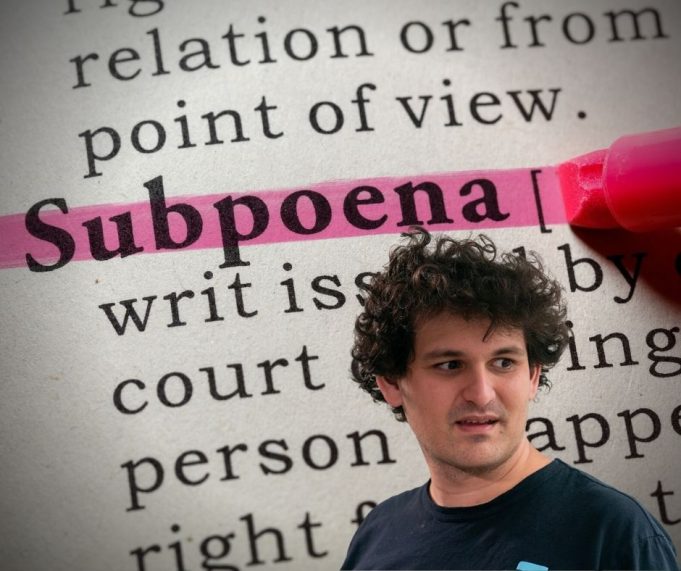The legal counsel of Sam Bankman-Fried is arguing that the subpoena issued to his mother, Barbara Fried, is “procedurally deficient” according to U.S. court caselaw. This means that the subpoena must be personally delivered to Bankman-Fried himself and not left in the care of someone else. The counsel is citing caselaw to support their argument that the subpoena is not valid and should be dismissed. This is an important issue as it could have a major impact on the outcome of the case. It is essential that the court follows the proper procedures when issuing subpoenas in order to ensure that justice is served.
Lawyers representing creditors of Voyager Digital, a crypto lender that went bankrupt in July 2022, are investigating FTX’s attempt to bail out the company. To do so, they are issuing a Rule 45 subpoena, which requires the named individual to produce documents for inspection and copying. This type of subpoena is used to obtain records and documents that can be used in court cases. The lawyers are hoping to uncover any evidence that could be used to support their case against FTX and Voyager Digital. By issuing this subpoena, they are hoping to get to the bottom of what happened and ensure that creditors are compensated for their losses.
A recent court case has highlighted the importance of following the rules when serving a Rule 45 subpoena. The subpoena in question was left in the possession of Barbara Fried, which does not satisfy the Rule’s requirement for personal service on Mr. Bankman-Fried. Substitute service is generally not permitted to serve a Rule 45 subpoena. Additionally, the subpoena places an undue burden on Bankman-Fried because it only gives him one business day to produce 49 separate documents, and a four-day notice to appear. It was also served before the President’s Day long weekend, making it difficult for Bankman-Fried to comply. This case serves as a reminder to follow the rules when serving a Rule 45 subpoena to ensure that the recipient is not unduly burdened.
Bankman-Fried, a creditor of Voyager, is facing a subpoena from the company’s other creditors to produce documents related to loans made by and to Alameda. However, Bankman-Fried is arguing that compliance with the subpoena would violate their Fifth Amendment rights, which protect against self-incrimination. The requested production would require reviewing a large volume of material and making judgments about their responsiveness, which could be deemed to constitute an incriminating testimonial act. The creditors are due back in court in New York on February 22 for another hearing.













